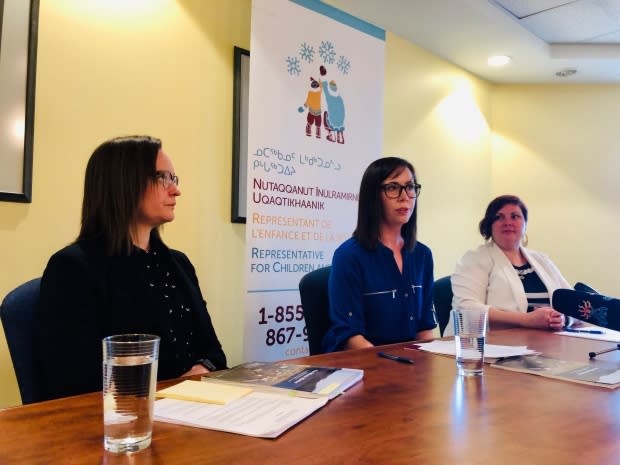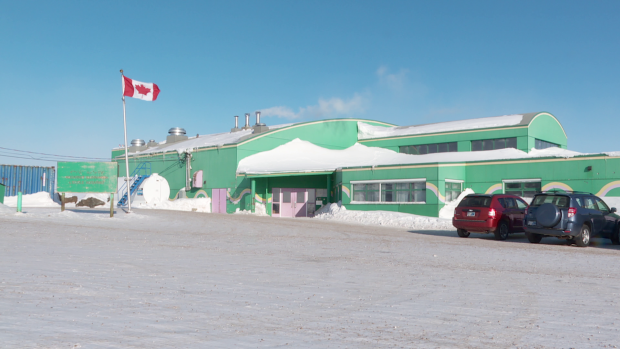Nunavut kids speak up about 'unacceptable' state of mental health services
Youth in Nunavut say they don't know how to access mental health services, or what services are available to them — and the territory's representative for children and youth says Nunavut's mental health system is inadequate, unacceptable, and failing to meet the needs of young people.
The revelations are part of a 54-page report published Wednesday by the representative's office, in its first systemic review since the office opened in September 2015.
The report heard from 225 young Nunavummiut, culminating in 15 recommendations to the Government of Nunavut, spanning five key themes: mental health in schools, in-territory mental health services, mental health workforce, awareness and barriers, and recreational and cultural activities.
"If this type of investment and shift does not occur, then we can no longer continue to be shocked by staggering youth suicide statistics, and outraged when hurt and helplessness disguise themselves as undesirable behaviour affecting our communities," said Sherry McNeil-Mulak, Nunavut's representative for children and youth.

The recommendations range from improving mental health services in schools, to funding Nunavut-based collegiate programs to try and curb the territory's notoriously transient workforce.
"Young people know what they need, they know what they want for their lives to improve it, so their voice was quite strong in all five of those themes," said McNeil-Mulak.
"Sometimes youth voices alone tend to be minimized, which isn't acceptable. So we let them lead the way on this, and we just backed them up from an adult perspective."
Mental health in schools
While the report is wide-ranging, one prominent section zeroed in on clinical mental health services within schools. In short, there aren't any.
"We repeatedly heard about the need to have mental health services available in schools," the report reads. "This was one of the top responses from youth when we asked what would make mental health services even better in Nunavut."
Some suggestions coming from youth included "having a counsellor other than just our guidance counsellor in the school," having a dedicated and trained mental health worker in the school, and a class focusing on mental health.
While many schools have an Illinniarvimmi Inuusilirijiit — an Inuktitut term for a school counsellor who receives mandatory mental health-related training every year — the report found it's not those counsellors' jobs to provide clinical mental health services.

Barriers accessing services
Even getting students mental health support that is already available in schools can be a struggle.
The report notes that if an underage student (younger than 19 years old) clearly needs mental health help, the schools aren't allowed to refer students to get clinical help without parental consent.
This runs counter to territorial health policies, which allows for underage youth to refer themselves for help.
Sometimes youth voices alone tend to be minimized, which isn't acceptable. So we let them lead the way. - Sherry McNeil-Mulak, Nunavut's youth representative
The report found the schools' policies problematic and lists examples of parents not responding to the school's request for consent, or saying they will discuss it at home.
"The school is left without parental consent, [and] therefore cannot connect the minor student with mental health services. In these cases, the school staff may then feel responsible for providing the student with mental health support; support they likely do not have the training to provide," the report reads.
The report also dug up a 2015 draft framework prepared by the departments of health and education, to collaborate on delivering mental health services in schools.
But the framework never got past the draft stage and McNeil-Mulak says her office didn't get a reason why.
The report is calling for more investments to recruit mental health workers, with specific training to work with young people, and investing in local skill development to curb the transient nature of Nunavut's mental health workforce.
Thursday afternoon the Government of Nunavut emailed a statement to CBC News in response to the report.
It said several departments are working to address mental health among children and youth, namely by creating new positions, and providing more training to outreach workers and Illinniarvimmi Inuusilirijiit counsellors.
It also said it's revisiting the Department of Education's policies around requiring parental consent to get students access to mental health services.
If you're Indigenous and experiencing emotional distress, call the First Nations and Inuit Hope for Wellness Help Line at 1-855-242-3310.
For help in Inuktitut, you can call the Kamatsiaqtut Help Line at 1-867-979-3333 or, toll-free from Nunavik or Nunavut, at 1-800-265-3333.

